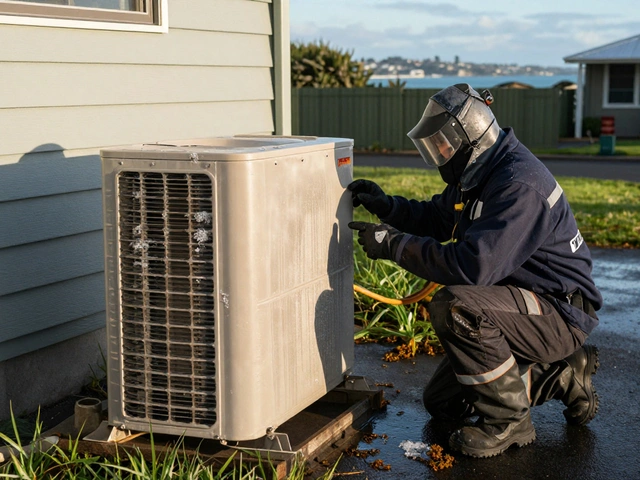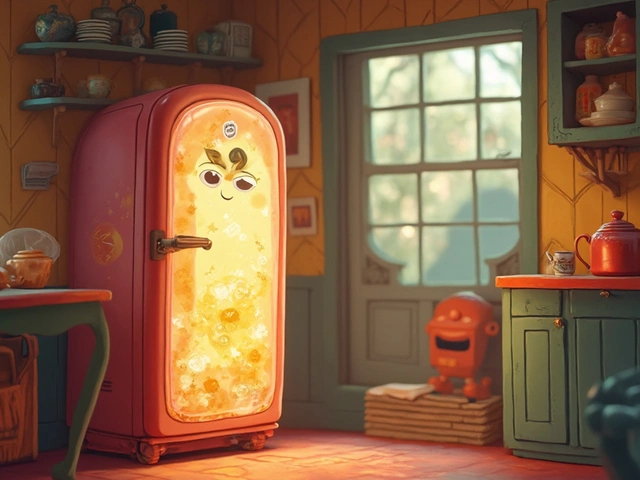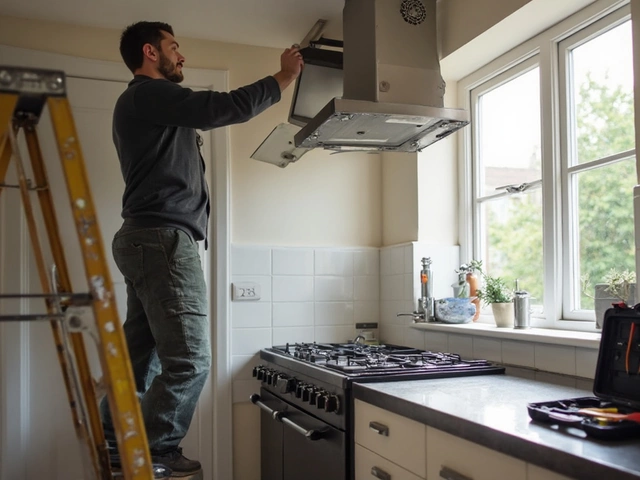Kitchen Extractor Fan Repair: Why Do They Suddenly Stop Working?
June 18 2025Kitchen Fan Issues: Why Your Fan Stops, Stutters, or Smells Bad
When you’re cooking, a working kitchen fan is a lifesaver. It sucks away steam, smoke, and odors so you don’t end up breathing in a cloud of grease. But when the fan sputters, gets noisy, or quits altogether, it can feel like a disaster waiting to happen. Below you’ll find the most common reasons fans act up, simple checks you can try, and clear signs it’s time to call an expert.
Quick DIY Checks
1. Is the power on? It sounds obvious, but many people forget to check the switch or circuit breaker. Flip the fan switch a few times, and if nothing happens, look at the fuse box. A tripped breaker is an easy fix – just reset it and see if the fan powers up.
2. Clean the filters and blades. Grease builds up fast in a kitchen. A clogged filter reduces airflow, makes the motor work harder, and often leads to a noisy fan. Remove the filter, soak it in hot, soapy water, rinse, and let it dry. While you’re there, wipe the blades with a damp cloth.
3. Listen for unusual sounds. A humming motor is normal, but rattling, grinding, or a high‑pitched whine means something’s loose or the bearings are wearing out. Tighten any visible screws, but don’t force anything – a loose screw can be the simplest fix.
4. Test the speed settings. If the fan runs on low but stalls on high, the capacitor that boosts power might be failing. Most fans have a small switch for speed; toggle it and note the difference. A weak high‑speed response usually points to a capacitor problem that needs replacement.
5. Check for blockages. Sometimes a pot or a dish rack sits too close to the vent, restricting airflow. Make sure nothing is blocking the intake or exhaust ducts. A clear path lets the fan do its job efficiently.
When to Call a Professional
If you’ve tried the steps above and the fan still won’t work, or if you notice any of these red flags, call a qualified gas engineer or electrician:
- Electrical smells or sparks. Any sign of burning wires is a fire hazard.
- Motor humming but the fan doesn’t spin. This usually means the motor or its bearings need a professional repair or replacement.
- Persistent strong odors. A lingering grease smell after cleaning could indicate a broken seal or duct issue that requires expert attention.
- Age of the fan. If your fan is over 10‑12 years old, parts become harder to find and a new, more efficient model may save you money in the long run.
Professional technicians can safely test the wiring, replace faulty capacitors, and check that the fan meets local ventilation codes. They’ll also give you advice on maintenance schedules to keep the fan humming for years.
Keeping your kitchen fan in good shape doesn’t have to be a chore. A quick monthly clean, an occasional check of the power supply, and listening for odd sounds can catch problems early. When the issue feels beyond a simple fix, let a certified engineer handle it – they’ll get the fan back to work fast and keep your kitchen safe and fresh.
 27 Feb
27 Feb
Can Kitchen Extractor Fans Be Repaired Effectively?
Kitchen extractor fans are essential for keeping your cooking space fresh and smoke-free, but what happens when they malfunction? This article explores the repairability of these fans, offering tips on troubleshooting common issues like unusual noises, reduced efficiency, and electrical faults. Discover whether DIY repair is feasible or if it's best to call a professional. Included are practical steps for maintenance to prolong the fan's life. Learn what to check, what tools might be needed, and when it's time to replace the fan.
Read More...



